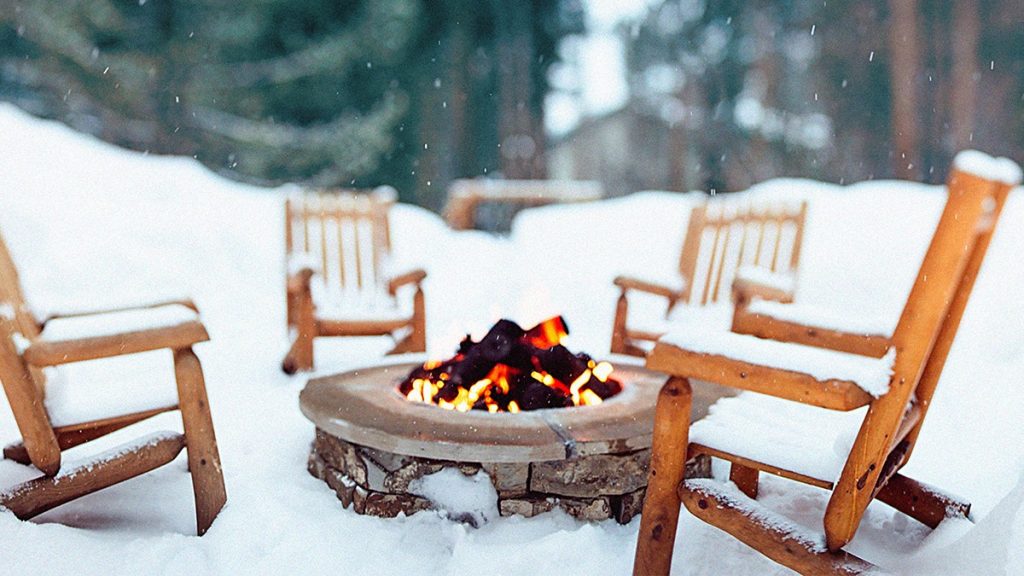Whether it’s the dog days of summer or the crisp evenings of fall, we all love spending time outdoors on our back patios, decks and lawns. Gas heaters and fire pits are a great way to extend the use of your outdoor space before it gets too cold, but there are precautions to take to enjoy the fire outside your home and keep it from spreading to the inside.
Gas and propane outdoor heaters
Gas and propane heaters are a convenient and affordable way to spend time with family and friends in the comfort of your own backyard. But exercising proper caution and regular maintenance are key to ensuring your backyard BBQ doesn’t leave you feeling a little bit… charred.
- The condition of your propane tank is important. Consider replacing the tank when it reaches its expiry date or when it shows signs of damage or excessive wear. Simply trade it in for a new one at a nearby vendor and only pay for the propane fill-up.
- Check for leaks in the tanks, nozzle and hose caused by damage or lose fittings. Lines and connections are the weak points in a gas/propane system. If you smell gas, shut the appliance off at the tank and don’t use it again until the leak has been properly identified and fixed.
- Be mindful of flammables or combustibles in the area. Make sure an unwanted fire does not start or spread due to blowing debris like leaves or other flammable objects nearby being ignited.
Other safe practice tips include:
- Ensure the area is properly ventilated
- Check to see if there are carbon monoxide detectors present in the home
- Don’t over do it. Portable gas space heaters should be used temporarily and not as a primary source of heating
- Tanks should be placed or stored in a safe location where they will not be accidently knocked over or run into by a vehicle
- Dispose of old tanks. Leaving them unattended and derelict can be dangerous
- Never bring your propane tank indoors
Wood fireplaces, firepits and chimeneas
Fireplaces, firepits and chimeneas are easy ways add style and warmth to any outdoor setting. But don’t let the soothing sound of crackling wood fool you, these too can cause damage to your home without proper supervision.
- Always keep fires under control. Fires should be built in an appropriately contained area and have the proper safety equipment to extinguish it if needed (i.e. hose, buckets, fire extinguisher, etc.).
- It’s safer to have fires after dark when it is easier to keep track of sparks and embers that may land in unexpected places.
- Do not add flammable liquids to help ignite your fire, or burn toxic materials, plastics, treated wood as all of these can cause your fire to get out of control quickly.
- Never leave a fire unattended. Always make sure the fire has been fully extinguished before you leave.
- Be aware of blowing leaves and debris as these can cause a fire to spread.
- Make sure firewood and other flammables are stored well away from the fire.
- Be aware of any local bylaws or advisories as they relate to fires to avoid the risk of wildfires or fines.
